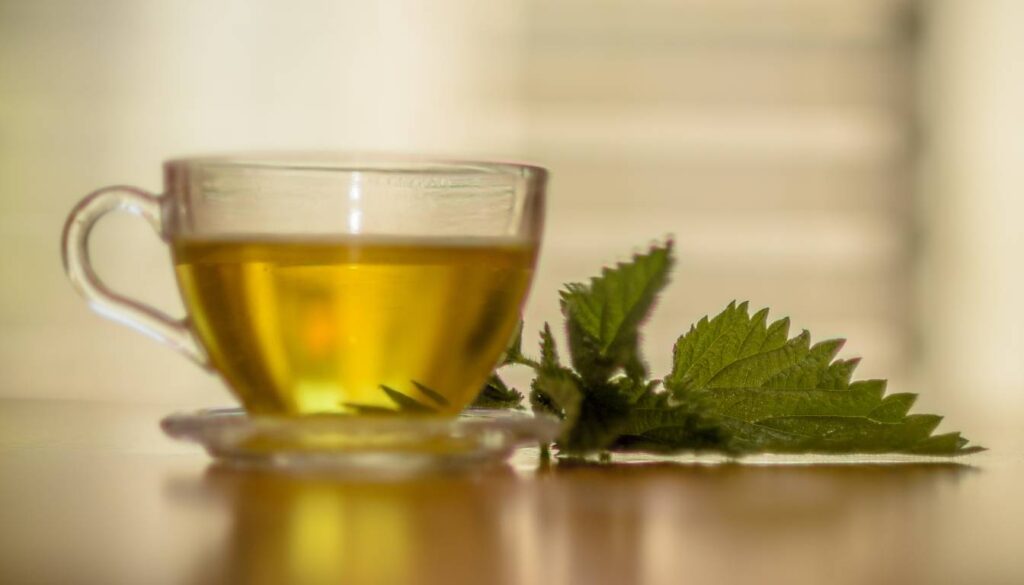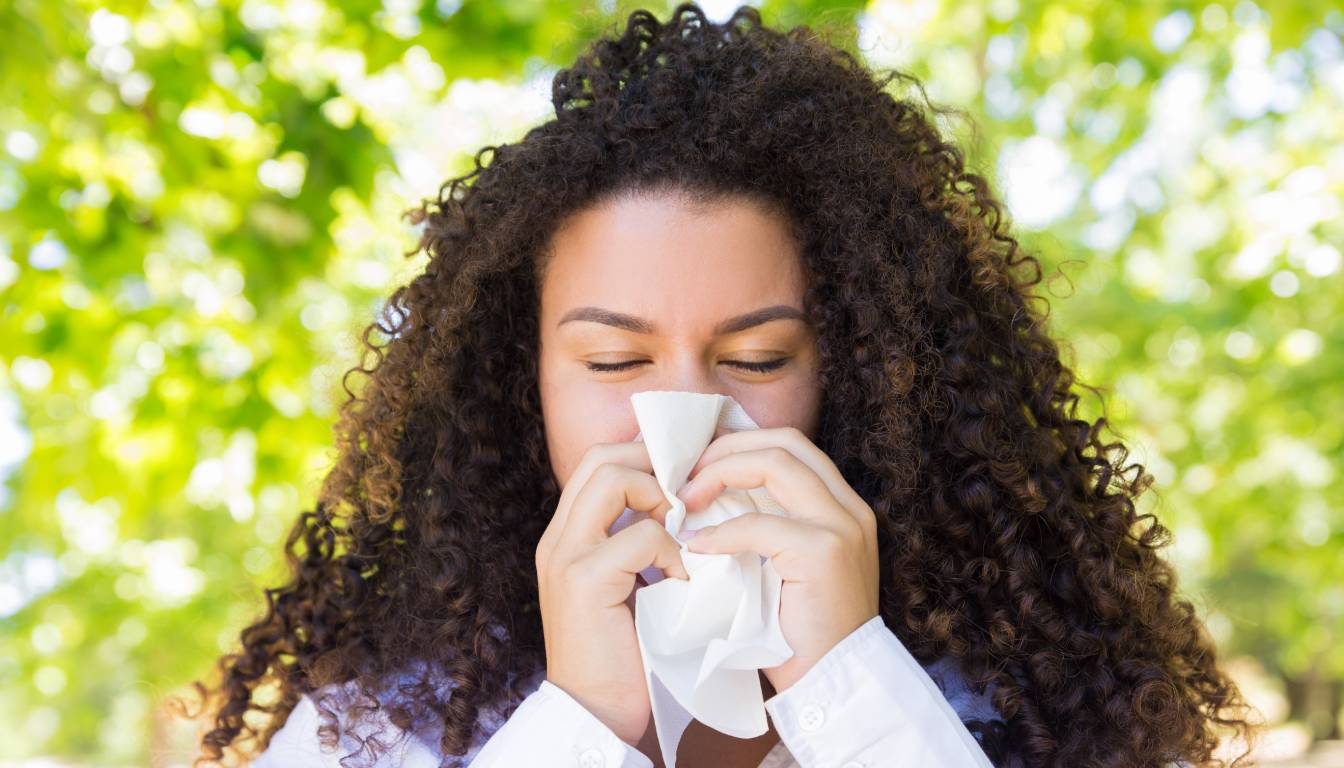For centuries, herbal remedies have been employed to address a range of health issues, including hay fever. Known as allergic rhinitis, hay fever is a widespread condition impacting millions globally. It’s an allergic response to pollen and other airborne allergens, leading to symptoms like sneezing, a runny nose, itchy eyes, and congestion. So, what are the top herbal remedies for hay fever?
While there are several over-the-counter medications available to treat hay fever, some people prefer to use natural remedies. Herbal remedies for hay fever can help alleviate symptoms and boost the immune system. For example, nettle leaf extract has been shown to reduce the severity of hay fever symptoms, while butterbur extract can help prevent the onset of symptoms. Other herbal remedies that may be beneficial for hay fever include chamomile, elderflower, and ginger. However, it is important to note that not all herbal remedies are safe or effective, and some may interact with other medications. Therefore, it is important to speak with a healthcare professional before using any herbal remedies for hay fever.
What Is Hay Fever?
Hay fever, also known as allergic rhinitis, is a common allergic reaction to airborne substances such as pollen, dust mites, and animal dander. It affects approximately 20% of the population worldwide.
Causes
Hay fever is caused by an immune response triggered by exposure to allergens such as pollen. When the immune system detects an allergen, it releases histamine, which causes inflammation and irritation in the nasal passages, eyes, ears, and throat. The immune system’s response to the allergen is what causes the symptoms of hay fever.
Symptoms
The symptoms of hay fever can vary from person to person, but they often include sneezing, a runny nose, itchy and watery eyes, congestion, and an itchy throat. These symptoms can be mild or severe, and they can interfere with daily activities and sleep 3.
The Role of Doshas
According to Ayurveda, the three doshas (Vata, Pitta, and Kapha) play a significant role in the development of hay fever. An imbalance in the doshas can lead to an overactive immune response and trigger allergic reactions. Ayurvedic treatments for hay fever aim to restore balance to the doshas and reduce inflammation in the body.
Hay fever is a common allergic reaction that can cause a range of symptoms, including sneezing, runny nose, and itchy eyes. It is caused by an immune response to allergens such as pollen, and Ayurveda suggests that an imbalance in the doshas can contribute to its development.
Footnotes
- American College of Allergy, Asthma, and Immunology
- Mayo Clinic
- National Institute of Allergy and Infectious Diseases
Natural Remedies for Hay Fever – Herbal Remedies for Hayfever
As someone who has suffered from hay fever, I have found that natural remedies can be effective in relieving symptoms. Here are a few natural remedies that may help alleviate hay fever symptoms:
Bee Pollen and Honey – Herbal Remedies for Hayfever
Bee pollen and honey are known to help with allergies. According to a study, consuming local honey can help reduce hay fever symptoms by exposing the body to small amounts of the allergen over time. Bee pollen, which is rich in vitamins and minerals, can also help boost the immune system and reduce inflammation.
Vitamin C – Herbal Remedies for Hayfever
Vitamin C is a natural antihistamine that can help reduce histamine production and alleviate hay fever symptoms. Foods rich in vitamin C include oranges, lemons, kiwis, and strawberries. You can also take vitamin C supplements.
Herbal Teas (Chamomile, Nettle) – Herbal Remedies for Hayfever
Herbal teas such as chamomile and nettle tea can help reduce inflammation and boost the immune system. Chamomile tea has anti-inflammatory properties that can help reduce hay fever symptoms, while nettle tea can help relieve allergy symptoms by blocking histamine production.
Ginger – Herbal Remedies for Hayfever
Ginger is a natural anti-inflammatory that can help reduce inflammation caused by hay fever. You can add fresh ginger to your meals or drink ginger tea to help alleviate symptoms.
Garlic – Herbal Remedies for Hayfever
Garlic is another natural anti-inflammatory that can help reduce inflammation caused by hay fever. It also has immune-boosting properties that can help reduce the severity of hay fever symptoms.
Natural remedies can be effective in alleviating hay fever symptoms. However, it is important to note that natural remedies may not work for everyone and it is always best to consult with a healthcare provider before trying any new remedies.
Lifestyle Remedies for Hay Fever – Herbal Remedies for Hayfever
Hay fever can be triggered by many allergens such as pollen, dust, and pet dander. While there are many natural remedies for hay fever, making lifestyle changes can also help alleviate symptoms. Here are some lifestyle remedies that can help:
Proper Diet – Herbal Remedies for Hayfever
Nutrition plays a vital role in maintaining a healthy immune system. Experts recommend avoiding dairy products as they can exacerbate hay fever symptoms. Instead, focus on consuming foods that are rich in probiotics such as yogurt, kefir, and fermented vegetables. Probiotics help maintain a healthy gut, which in turn boosts the immune system.
Showering Regularly – Herbal Remedies for Hayfever
Pollen and other allergens can stick to your hair and clothes, causing hay fever symptoms to worsen. Experts recommend showering regularly to remove any allergens that may have attached to your hair and skin. Additionally, washing your clothes regularly can also help remove any allergens that may have attached to them.
Making these simple lifestyle changes can help alleviate the symptoms of hay fever. By avoiding allergens and maintaining a healthy immune system, you can enjoy the outdoors without worrying about hay fever.
Before You Go – Herbal Remedies for Hayfever

Herbal remedies can be a great addition to a treatment plan for hayfever. While there is no cure for hayfever, there are many options available to help alleviate symptoms. In addition to consulting with allergy specialists, immunotherapy, and allergy medications, incorporating herbal remedies can provide a natural alternative to traditional medicine.
It is important to note that while herbal remedies can be effective, they should not replace medical treatment. Always consult with a healthcare professional before starting any new treatment plan.
Some of the most effective herbal remedies for hayfever include stinging nettle, butterbur, and quercetin. Stinging nettle has been shown to reduce inflammation and relieve allergy symptoms. Butterbur is as effective as antihistamines in reducing symptoms. Quercetin, found in foods such as onions and apples, has anti-inflammatory and antihistamine properties.
Incorporating these herbal remedies into your daily routine can help reduce the severity of hayfever symptoms. Additionally, reducing exposure to allergens, such as pollen and dust, can also help alleviate symptoms.
Overall, incorporating herbal remedies into a treatment plan for hayfever can be a safe and effective way to manage symptoms. With the guidance of a healthcare professional, individuals can find a personalized approach to managing their hayfever symptoms.
Herbal Remedies for Hayfever: A Connection to Our Home Page
Let’s delve into the world of herbal remedies for hayfever and how it links to our home page at theherbprof.com. They’re like two pieces of a puzzle, each enhancing the other’s picture!
Our home page is a treasure chest of herbal wisdom. It’s packed with information about various herbs and their medicinal properties. When it comes to understanding the healing power of herbal remedies for hayfever, this knowledge is your secret weapon!
References – Herbal Remedies for Hayfever
Little Herb Encyclopedia, by Jack Ritchason; N.D., Woodland Publishing Incorporated, 1995
The Ultimate Healing System, Course Manual, Copyright 1985, Don Lepore
Planetary Herbology, Michael Tierra, C.A., N.D., Lotus Press, 1988
Handbook of Medicinal Herbs, by James A. Duke, Pub. CRP Second Edition 2007
The Complete Medicinal Herbal, by Penelope Ody, Published by Dorling Kindersley
Check the Following Articles!
How to Become a Herbalist for Free: A Clear Guide
Herbalist Definition: What Does it Mean and Who Qualifies?
10 Must-Try Herbal Remedies for Natural Healing
Frequently Asked Questions – Herbal Remedies for Hayfever
1. What natural treatments are effective for hay fever sneezing?
Several natural treatments can be effective for hay fever sneezing. One of the most popular is using a saline nasal spray to help clear out the sinuses. Another effective treatment is using a neti pot to flush out the nasal passages. Some people also find relief from taking a spoonful of local honey every day, as it can help to desensitize the body to pollen.
2. Can allergic rhinitis be permanently treated with home remedies?
While there is no cure for allergic rhinitis, home remedies can be effective in managing symptoms. Some people find relief from using a neti pot or saline nasal spray to clear the sinuses. Others find that taking a spoonful of local honey every day can help to desensitize the body to pollen. It is important to note that these remedies may not work for everyone, and it is always best to talk to a healthcare professional before trying any new treatments.
3. What are safe natural hay fever remedies for young children?
There are several safe natural hay fever remedies for young children. One of the most effective is using a saline nasal spray to help clear out the sinuses. Another safe remedy is using a neti pot to flush out the nasal passages. Some parents also find relief from giving their children a spoonful of local honey every day, as it can help to desensitize the body to pollen. It is always best to talk to a pediatrician before trying any new treatments for young children.
4. Which herbs are best for relieving sinusitis symptoms?
Several herbs are effective in relieving sinusitis symptoms. One of the most popular is eucalyptus, which can help to clear the sinuses and relieve congestion. Another effective herb is peppermint, which can help to reduce inflammation and relieve pain. Other herbs that may be effective include ginger, garlic, and turmeric.
5. What is considered the most potent natural antihistamine for hay fever relief?
Quercetin is considered to be one of the most potent natural antihistamines for hay fever relief. It is a flavonoid that is found in many fruits and vegetables, including apples, onions, and citrus fruits. Quercetin has been found to help reduce inflammation and histamine release in the body, which can help to relieve hay fever symptoms.
6. Are there any traditional Chinese herbal formulas recommended for hay fever?
Yes, there are several traditional Chinese herbal formulas that are recommended for hay fever. One of the most popular is the formula Bi Yan Pian, which contains a blend of herbs that can help relieve nasal congestion and inflammation. Another popular formula is Xin Yi Wan, which contains herbs that can help to relieve sinusitis symptoms. It is always best to talk to a healthcare professional before trying any new treatments, including traditional Chinese herbal formulas.
